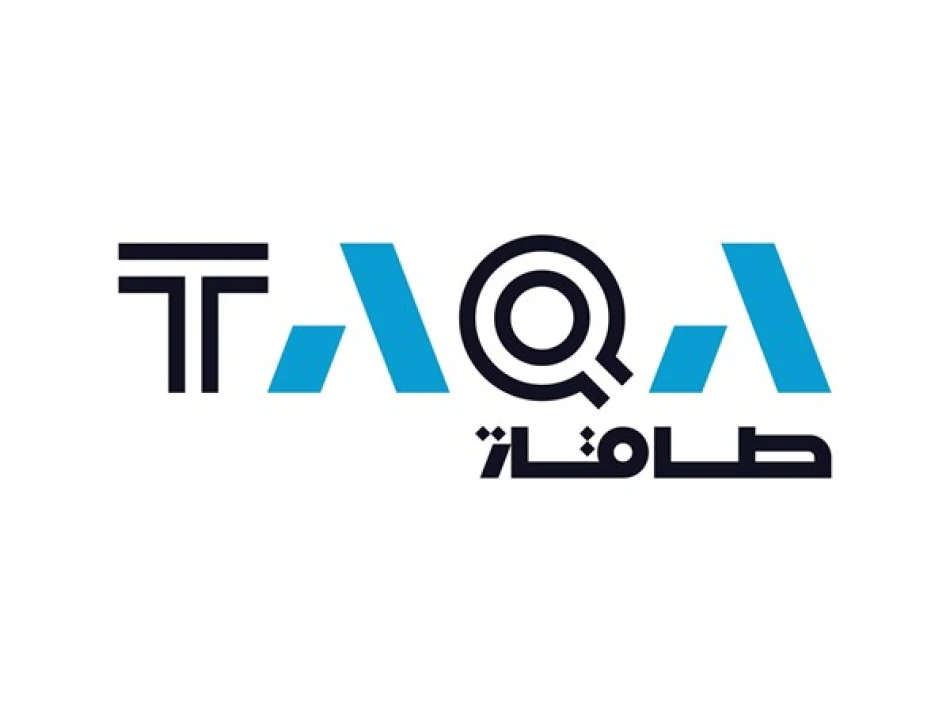
Power Play: Emirati Utility Secures $2.3B Loan to Fuel Growth Strategy
TAQA Secures $2.3 Billion Local Currency Loan as UAE Energy Giants Double Down on Dirham Strategy
Abu Dhabi National Energy Company (TAQA) has closed a AED 8.5 billion ($2.3 billion) institutional loan, marking a strategic shift toward local currency financing that reflects both the strength of UAE's domestic capital markets and the company's confidence in dirham-denominated revenue streams. The two-year facility, with an optional one-year extension, positions TAQA to capitalize on lower borrowing costs while supporting its long-term growth strategy across power, water, and low-carbon energy sectors.
Strategic Financing Architecture
The loan structure reveals careful financial engineering designed to optimize capital costs and currency matching. By securing variable-rate dirham financing, TAQA aligns its debt profile with its predominantly UAE-based revenue streams, eliminating foreign exchange risk that has historically plagued regional energy companies with dollar-heavy debt loads.
Emirates NBD and First Abu Dhabi Bank served as joint lead arrangers and bookrunners, while Mashreq Bank took the mandated lead arranger role. This banking consortium represents the cream of UAE's financial sector, signaling strong institutional confidence in TAQA's credit profile and growth trajectory.
Local Market Liquidity Advantage
The decision to tap dirham markets capitalizes on robust liquidity in UAE's domestic financial system. The Emirates Interbank Offered Rate (EIBOR) currently offers compelling cost advantages over international benchmarks, reflecting the UAE Central Bank's successful monetary policy management and the country's strong fiscal position amid elevated oil prices.
This local currency approach mirrors strategies employed by other regional champions like Saudi Aramco and Qatar Energy, which have increasingly turned to domestic markets to fund expansion while reducing currency mismatches.
Capital Structure Optimization
TAQA's financing strategy demonstrates sophisticated debt management, with the two-year tenor strategically positioned to avoid overlap with existing maturities. The company faces no significant institutional debt redemptions in 2027, creating a smooth maturity profile that enhances financial flexibility.
The facility complements TAQA's existing $20 billion global medium-term note program and $3.5 billion revolving credit facilities, creating a diversified funding architecture that spans currencies, markets, and investor bases. This multi-layered approach provides resilience against market volatility while maintaining access to capital across economic cycles.
Drawdown Flexibility
The staged drawdown structure allows TAQA to match funding with actual capital deployment, minimizing carry costs while maintaining strategic optionality. This approach proves particularly valuable given the lumpy nature of energy infrastructure investments and the extended development timelines for renewable energy projects.
Growth Strategy Implications
CEO Jasim Husain Thabit emphasized that the financing supports TAQA's long-term growth strategy, which encompasses domestic utility operations alongside international expansion in power generation and renewable energy. The company has been particularly active in markets like India, Morocco, and the Netherlands, requiring flexible capital to pursue acquisition opportunities and greenfield developments.
TAQA's focus on low-carbon energy aligns with the UAE's Net Zero 2050 strategy and positions the company to benefit from the global energy transition. The financing provides ammunition for investments in solar, wind, and potentially hydrogen projects as the UAE seeks to diversify its energy export portfolio beyond hydrocarbons.
Market Context and Investor Perspective
The successful loan syndication reflects broader confidence in UAE's energy sector and the country's economic diversification efforts. For international investors, TAQA represents exposure to both the stable utility cash flows from Abu Dhabi's regulated markets and the growth potential of renewable energy investments across emerging markets.
The competitive pricing achieved on this facility demonstrates TAQA's strong credit standing and the depth of UAE's banking sector. Regional banks' willingness to provide substantial long-term funding reflects their confidence in the UAE's economic outlook and TAQA's operational track record.
This financing strategy positions TAQA to capitalize on the energy transition while maintaining the financial flexibility necessary to navigate volatile commodity markets and evolving regulatory landscapes across its operating jurisdictions.
Most Viewed News

 Layla Al Mansoori
Layla Al Mansoori






